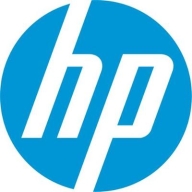

HP Wolf Security and Kaspersky Endpoint Detection and Response are leading cybersecurity solutions in the endpoint security category. Kaspersky Endpoint Detection and Response appears to have the upper hand with its superior features and adaptability to sophisticated threats, making it worth the investment despite pricing differences.
Features: HP Wolf Security is praised for isolation capabilities, seamless integration, and efficient threat containment. Kaspersky Endpoint Detection and Response offers comprehensive threat intelligence, advanced anomaly detection, and the ability to adapt to sophisticated threats.
Room for Improvement: HP Wolf Security could enhance its reporting mechanisms, add more customization options, and improve user adaptability. Kaspersky Endpoint Detection and Response needs better scalability, a lighter system impact, and further refinement in usability.
Ease of Deployment and Customer Service: HP Wolf Security is noted for straightforward deployment and reliable customer support. Kaspersky Endpoint Detection and Response may require a more complex setup but offers robust support and comprehensive onboarding.
Pricing and ROI: HP Wolf Security offers competitive pricing, but its ROI is limited by basic features. Kaspersky Endpoint Detection and Response, despite a higher initial cost, delivers better ROI through advanced functionality and security efficacy.

HP Wolf Security is a comprehensive cybersecurity solution that bolsters your organization's cyber-resilience on multiple fronts. With its full-stack security approach, it ensures layered protection from hardware to the cloud, providing a robust defense against cyber threats. HP Wolf Security introduces endpoint isolation, a cutting-edge feature that effectively halts threats that may go unnoticed by Next-Generation Antivirus (NGAV) and Endpoint Detection and Response (EDR) systems. Moreover, it extends its security coverage to printers, equipping them with advanced detection and self-healing capabilities to further safeguard your digital ecosystem. This integrated solution streamlines IT and security risk management, resulting in fewer alerts and false positives, and reduces the time and effort required for endpoint incident analysis and remediation. Notably, HP Wolf Security prioritizes productivity, allowing you to manage risk without disrupting the user experience, enabling worry-free work from anywhere, and offering rapid IT disaster recovery at scale.
Kaspersky Endpoint Detection and Response provides robust malware detection, endpoint security, integration with SIEM, control of USB devices, and behavior analysis, deployed on servers, mobile devices, and laptops.
Kaspersky Endpoint Detection and Response aids organizations in scanning environments, blocking sites, handling data transfers, and offering visibility into quarantine systems. Utilizing features such as encryption, machine learning analysis, caching, and automation, Kaspersky ensures enhanced security. The unified agent incorporates antivirus and EDR functionalities, centralizes management, and provides sandbox analysis alongside early-stage threat detection. Automated response capabilities improve efficiency, and the tool's lightweight nature maintains device performance despite high detection rates and advanced threat prevention mechanisms.
What are some of the key features?In industries like finance, healthcare, and retail, Kaspersky Endpoint Detection and Response can be implemented to protect sensitive data and critical systems against advanced threats. Financial institutions may leverage its high detection rates and behavior analysis to secure transactions and customer information. Healthcare organizations can utilize its sandbox analysis and early-stage threat detection to protect patient data. Retail businesses benefit from the enhanced security and efficient automated responses, ensuring customer data remains safe during transactions.
We monitor all Endpoint Detection and Response (EDR) reviews to prevent fraudulent reviews and keep review quality high. We do not post reviews by company employees or direct competitors. We validate each review for authenticity via cross-reference with LinkedIn, and personal follow-up with the reviewer when necessary.